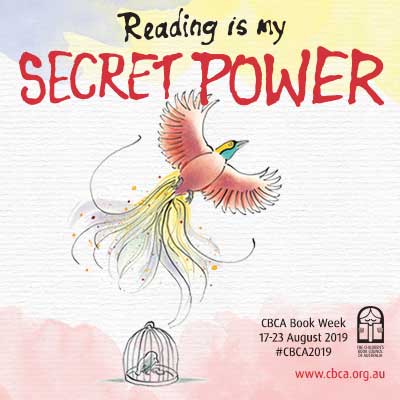From the Principal
There has been a lot in the media lately about reading, and the rights and wrongs associated with it. Some of my most vivid memories as a child are of being read to by my mother but also my father. My dad was certainly less patient than mum and at times became frustrated by my constant questions about why a character would behave in certain ways, but to his credit, he persisted with Alice and she successfully made her adventures through Wonderland.
There are so many educational, social and emotional benefits that come from children being read to but families are busy, and finding time to read aloud can be eaten up by the demands of everyday life. This year's theme for Book Week was 'Reading is My Secret Power' and below are five suggestions which came from this year's conference in August.
Kind Regards
Penny Wilde
Principal

1. Give it all your attention
For many parents and caregivers, the best time to read with their children is at night, once the children are in bed. If you find your child too cranky and disengaged at this time (or if you are feeling tired yourself), you can try reading to them earlier in the day. Whatever the time, it's important to give the book and your children all of your attention. Devices with enabled notifications should be switched off. Everyone should be comfortable, and children should associate time spent being read to with enjoyment.
2. Engage with the story
Children don't typically enjoy having the story stopped every few seconds for comprehension checking, so keep interruptions to a minimum. Recapping is useful when picking up a book again after a break. If parents and caregivers let their children provide this recap ("So, where are we up to?") this enables informal comprehension checking. Opportunities for prediction are also beneficial ("Wow… what do you think might happen next!").
3. There's no age limit
You can start reading to your child from early infancy to support their developing language abilities, so it's never too early to start. The skills infants and young children develop through shared reading experiences can set them up for literacy achievement in their subsequent schooling years.
Reading to your children remains important beyond the early years too, with continuing benefits for literacy development and cognitive skills. We should read to young people for as long as possible. There is no age where the benefits of being read to completely expire.
4. Pick a book you both enjoy
Reading aloud provides parents and caregivers with a valuable opportunity to slow down and relax. We suggest you select a book that interests both you and your child as reading together is a great opportunity to share your passions and broaden your horizons through different texts.
Don't be afraid to start reading chapter books to your children while they are still very young. As long as the story isn't too complex, children love to be taken on an enjoyable journey into books that are too hard for them to read independently. This can also help to extend child's vocabulary, among other benefits. It's a good idea to take your children to the library and share how you choose interesting books for shared reading.
5. Don't worry about your style
Not all of us are award-winning voice actors, and that's OK. It's great to use expression and adopt different voices for the characters in a book, but not everyone will feel able to do this.
Research highlights many people who have praised the reading efforts of their parents who weren't confident readers, but who tried their best. Being taken into the virtual reality of story is a memorable, pleasurable experience that stays with us forever.
Taken from 'The Conversation'
https://theconversation.com/five-tips-to-help-you-make-the-most-of-reading-to-your-children-93659
Margaret Kristin Merga is a senior lecturer in Education at Curtin University; Paul Gardner is a senior lecturer in Literacy Education at Curtin; Saiyidi Mat Roni is a lecturer in the School of Business and Law at Edith Cowan University; and Susan F Ledger is associate dean of Engagement at Murdoch University School of Education.

